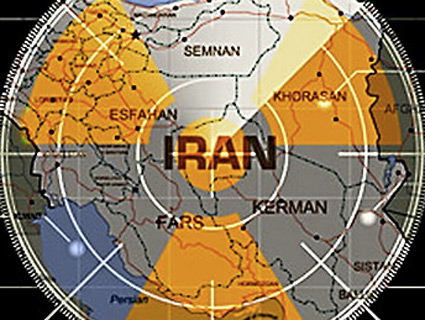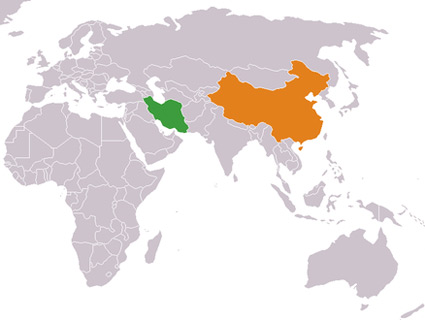
<a href="http://www.flickr.com/photos/visionshare/2608449399/">Lou Gold</a>/Flickr
Are the United States and Iran on a collision course over the Middle Eastern country’s controversial nuclear program? We’ll be regularly posting the latest news on Iran-war fever—the intel, the media frenzy, and the rhetoric.
Last week, Sens. Joseph Lieberman (I-CT), Robert Casey (D-PA), and Lindsey Graham (R-S.C.) introduced Senate Resolution 380, which emphatically rejects a containment policy towards Iran and promotes a more hardline stance on preventing the Islamic Republic from acquiring “nuclear weapons capability.” The proposal also encourages increased diplomatic and economic pressure on Iran, and “urges the President to reaffirm the unacceptability of an Iran with nuclear-weapons capability…” If adopted, the bill could make military conflict more likely.
The non-binding resolution—which has been shopped around in the Senate since early February—has yet to win anything close to wide support. It does, however, have the backing of AIPAC, the American Israel Public Affairs Committee, which calls itself “America’s Pro-Israel Lobby.” (The group plans to make the resolution an “ask” in two weeks during its annual Capitol Hill-lobbying conference.)
Critics charge that the proposal’s vague language—particularly the tricky definition of “nuclear weapons capability“—crosses the line between condemnation and straight-up warmongering.
The Atlantic‘s Robert Wright has more:
This resolution speaks instead of a “nuclear weapons capability.” In other words, Iran shouldn’t be allowed to get to a point where, should it decide to produce a nuclear weapon, it would have the wherewithal to do so…Does “capability” mean the ability to produce a bomb within two months? Two years? If two years is the standard, Iran has probably crossed the red line already. (So should we start bombing now?) Indeed, by the two-year standard, Iran might well be over the red line even after a bombing campaign–which would at most be a temporary setback, and would remove any doubt among Iran’s leaders as to whether to build nuclear weapons, and whether to make its nuclear program impervious to future American and Israeli bombs. What do we do then? Invade?
[I]f interpreted expansively, the “nuclear weapons capability” threshold is a recipe not just for war, but for ongoing war–war that wouldn’t ultimately prevent the building of a nuclear weapon without putting boots on the ground. And it turns out that the authors of this resolution want “nuclear weapons capability” interpreted very expansively.
Wright’s whole piece—which delves more into the AIPAC push and the “jitters among [Senate] Democrats anxious over the specter of war”—is worth a read.















